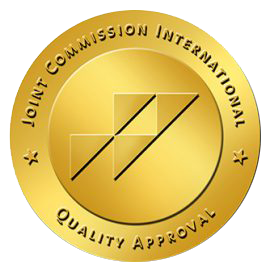
Acute Gastroenteritis
9 facts about Acute Gastroenteritis
- What is Acute Gastroenteritis?
A gastrointestinal tract inflammation that mainly affects the stomach and small intestine. It can be caused by either viral, bacterial or parasitic infection.
Viruses are the most common cause of acute gastroenteritis such as:
- Rotavirus is a highly contagious strand, transferred by the fecal-oral route and known to cause diarrhea among infants and young children.
- Adenovirus triggers a range of illnesses and is known to be the third most common cause of gastroenteritis among children.
- Norovirus mainly affects adults and can lead to foodborne disease outbreaks.
Bacteria is the second ranked cause of acute gastroenteritis.
- Invasive bacteria like Shigella, Salmonella and Yersinia cause hemorrhagic (bloody) diarrhea and fever.
- Non-invasive bacteria such as Staphylococcus aureus, Bacillus cereus and Vibrio cholerae cause watery diarrhea.
- Parasites such as Giardia, Cryptosporidium and Entamoeba are common triggers of gastroenteritis.
- What are the symptoms of acute gastroenteritis?
There are a number of symptoms that can help detect acute gastroenteritis:
- Watery diarrhea or bloody diarrhea
- Abdominal cramps
- Stomach pain
- Fever
- Headache
- Nausea and vomiting
- Lightheadedness
- Extreme thirst
- Dry skin and mouth
- Loss of appetite
- Altered urine output
- Lethargy (lack of energy)
- Palpitations (increased heart beats)
- How is acute gastroenteritis treated?
To prevent dehydration, patients with acute gastroenteritis are given oral or intravenous hydration solutions to replenish the loss of fluids and electrolytes. In cases of severe dehydration, immunosuppression, persistent diarrhea (more than three days) or medical conditions (hypertension, diabetes, coronary artery disease), antibiotic treatment or hospitalization may be required and laboratory or stool tests shall be performed.
In case of hospitalization, patients are observed for 48 to 72 hours to ensure that their case does not worsen. It is also common practice to reassess the patient after treatment, especially if they are immunosuppressive, HIV positive or pregnant. This is done by executing lab tests such as CRP, WBC, Creatinine, electrolyte, stool analysis and culture.
Nutrition can play a vital role in gastroenteritis treatment. In fact, patients with acute gastroenteritis are advised to avoid drinking milk, alcohol, or eating fiber rich food, and fruits. Alternatively, they are encouraged to drink water and soup and eat protein-rich food (chicken, fish, meat etc.).
- Is acute gastroenteritis contagious?
In case gastroenteritis is caused by food allergies or medication side effects, the disease is not contagious. Otherwise, acute gastroenteritis is contagious and can be spread by:
- Contaminated surfaces
- Contaminated food and water
- Person to person contact (fecal-oral route or bodily fluids)
- Unwashed hands after using the bathroom
- How does acute gastroenteritis affect the body?
Acute Gastroenteritis can affect other organs in the body and can contribute to the development of:
- Hypotension
- Intestinal ischemia (severe damage to the intestines)
- Kidney injury (increased creatinine levels)
- Heart failure
- Liver failure
This is why close observation is carried out when acute gastroenteritis is diagnosed.
- How can acute gastroenteritis be prevented?
There are several steps that can be taken to prevent acute gastroenteritis:
- Wash hands after using the bathroom
- Wash hands before and after handling food
- Do not share towels with infected people
- Wash fruits and vegetables adequately
- Limit raw food consumption
- Are antibiotics used to treat acute gastroenteritis?
Most diagnosed acute gastroenteritis cases are viral, the use of antibiotics is not needed to treat viral infections. Antibiotics can negatively affect the immune system, and can cause side effects such as nausea and diarrhea, which are usually confused with acute gastroenteritis symptoms, therefore physicians recommend their use only when necessary. In fact, antibiotics will only treat bacterial gastroenteritis as they are ineffective against viruses. The misuse or abuse of antibiotics may lead to the formation of antibiotic-resistant bacteria. Therefore, make sure to use antibiotics ONLY WHEN PRESCRIBED by a healthcare professional and to always follow the full prescription.
- When is a colonoscopy needed?
In acute gastroenteritis, colonoscopy is usually not required. Colonoscopy is only required in chronic diarrhea (more than two weeks) and immunosuppressed patients to rule out opportunistic infections such as CMV and clostridium difficile.
- What is traveler’s diarrhea?
Traveler’s diarrhea is the most common illness while traveling. Since it tends to resolve on its own, symptoms will disappear progressively without treatment. However, it is crucial to stay hydrated using safe packaged liquids (preferably bottled water) to replenish lost fluids and electrolytes.
Dr. Elias Fiani,
Gastroenterologist
Leave a reply






